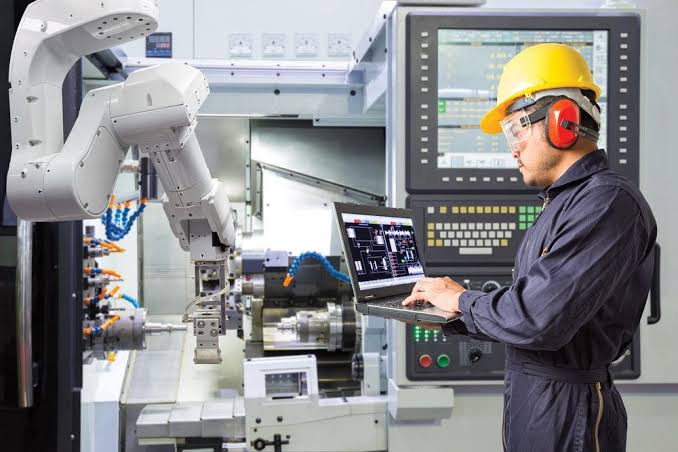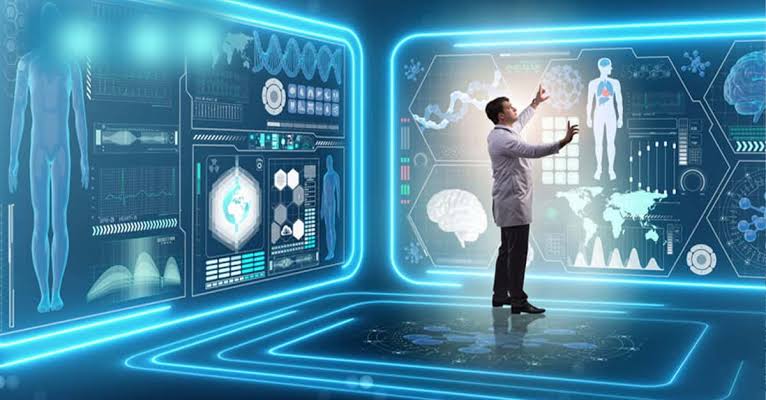Welcome as we step into the future, where industries worldwide are going to undergo a reshaping shift led by automation machines! Whether in manufacturing healthcare or plant settings, these innovative technologies are redefining work processes and reshaping our daily routines. In this article post, we are going to explore the captivating realm of automation, unveiling its impact on various industries and charting a course toward a future characterized by enhanced efficiency and productivity. As we discover the benefits it brings and gain a glimpse into its prospective expansion. Join us on this thrilling expedition as we unravel the remarkable influence of automation machines!
How Automation is Reshaping Industries
Automation machines are revolutionizing industries globally, transforming work processes and boosting efficiency. In manufacturing, robots streamline production, enhancing precision and output. The healthcare sector benefits from robotic surgical systems and automated pharmacies, improving patient outcomes. Agriculture sees autonomous machinery optimizing practices for increased yields and resource efficiency.
Transportation will embrace self-driving vehicles for safety and saving time and money. Rather than replacing jobs, automation often takes over mundane tasks and allows workers to focus on their strategic roles. As technology advances, artificial intelligence with automation systems continues to drive innovation, shaping a dynamic future.
Advantages of Automation Machines
Industries worldwide have undergone a profound transformation with the advent of automation machines, delivering numerous benefits to businesses. A key advantage lies in heightened efficiency, as these machines automate once-manual, repetitive tasks, enabling companies to save time and resources. Another notable benefit is improved accuracy, as automation ensures consistent precision without the errors associated with human factors like fatigue or distractions. And also, automation machines can reduce cost savings, by eliminating labor-intensive processes and reducing time waste.
Enhanced workplace safety will be a further advantage, with the automation machines taking the physically demanding tasks, and reducing the risk of injuries for workers while maintaining productivity. Automation machines provide businesses with the ability to scale and handle large work volumes rapidly and effectively.
This enables them to easily adapt to market demand without sacrificing quality or speed. Automation machines offer clear benefits across a wide range of industries. These include increased efficiency, greater accuracy, cost savings, and improved safety measures.
Case Studies: Real World Examples of Automation in Action
Automation machines will bring a transformative impact on diverse industries, elevating productivity, efficiency, and precision. We explore compelling case studies that illustrate the dynamic influence of automation.
In the manufacturing sector, Tesla cars serve as a standout example of how automation machines have revolutionized the production process. Utilizing robots and automated assembly lines has markedly boosted output while upholding stringent precision standards. This approach has enabled Tesla to efficiently meet the escalating demand for its electric vehicles.
Automation machines will bring remarkable changes to the healthcare industry, particularly exemplified by the emergence of robotic surgical systems. These advanced systems empower surgeons to perform intricate procedures with exceptional precision and minimal invasiveness. As a result, patient outcomes are enhanced, and recovery time is reduced.
There is another example to consider is the utilization of automation machines in Amazon’s fulfillment centers. These machines play a crucial role in efficiently managing inventory, as well as handling tasks related to picking and packing orders seamlessly. Leveraging advanced robotics systems, Amazon processes thousands of orders every hour with remarkable accuracy.
The agriculture industry has embraced automation to optimize farming practices. Autonomous tractors, equipped with GPS technology and sensors, can perform precise planting, fertilizing, and harvesting operations without human intervention. This not only results in increased yields but also reduces labor costs for farmers.
These real-world examples serve as a testament to how automation machines are reshaping various industries across the globe. By streamlining processes, increasing productivity levels, and minimizing errors or inefficiencies, automation is revolutionizing the way we work across different sectors.
Future Outlook: Predictions for the Growth of Automation
Automation machines have the potential to greatly enhance productivity and efficiency in the manufacturing sector. They will increase speed, ensure consistency and accuracy, streamline processes, enable continuous operation, provide scalability, and facilitate data-driven decision-making. Manufacturers can expect improved quality control, reduced human error, and greater productivity as they embrace automation.
While there are concerns about job displacement, there will also be new opportunities for workers skilled in operating and maintaining these advanced machines. Overall, automation machines offer a promising future for the manufacturing sector, driving innovation and efficiency.
The Role of Artificial Intelligence in Automation
Artificial Intelligence (AI) is revolutionizing automation, enhancing efficiency, accuracy, and adaptability for businesses. Through the incorporation of AI technology, automation machines can learn and improve over time, employing machine learning algorithms to analyze data, identify patterns, and make informed decisions. This continuous optimization boosts productivity and cost savings.
AI-powered automation excels in handling complex tasks, freeing human resources from manual intervention. The integration of advanced algorithms enhances problem-solving capabilities, enabling autonomous identification and resolution of issues within processes. This proactive approach minimizes downtime, maximizing overall operational efficiency.
Moreover, AI-driven automation fosters innovation through predictive maintenance practices. Real-time analysis of sensor data using machine learning predicts potential machinery failures, allowing organizations to schedule preventive maintenance effectively, and avoiding costly disruptions.
In conclusion, artificial intelligence has become integral to modern automation, learning from data insights to efficiently handle complex tasks and reduce reliance on manual labor. The problem-solving capabilities of AI enhance operational effectiveness, and as technology advances, we can anticipate even greater integration between AI and automation, shaping a future where smart machines play a vital role in industries.
Challenges and Concerns Surrounding Automation
One prominent concern is the potential displacement of jobs. As automation machines take over more tasks that can make the work easier, there is apprehension that many jobs may become obsolete, leaving workers unemployed or necessitating the acquisition of new skills.
Another concern revolves around the reliance on technology. While automation machines will significantly enhance efficiency and productivity, it also means that businesses become increasingly reliant on these machines. Any malfunction or downtime could have substantial consequences for production schedules and overall operations.
The automation machines also raise significant concerns regarding privacy and security. These machines gather and store vast amounts of data, there is a risk of sensitive information being compromised. The potential for unauthorized access by hackers further amplifies the potential for disruptions or damage to occur.
The Ethical considerations pose another challenge in the context of automation. For instance, in industries like healthcare where robots assist in surgeries or provide patient care, questions arise regarding accountability in the event of errors or when decisions must be made concerning patient well-being.
While automation offers numerous benefits, it is vital to address these challenges and concerns for its successful integration into various industries. Taking proactive measures ensures that the advantages of automation can be maximized while mitigating potential drawbacks.
Conclusion: Embracing the Changes Brought by Automation
In this article, we will explore how automation machines are reshaping our industries globally, from manufacturing to healthcare. These technologies and processes boost efficiency, and elevate productivity significantly. The main goal of automated machines is to increase productivity, increase efficiency, and accuracy in the production process, reduce manual labor, and decrease the risk of human error.
As we look together, the promising future of automation involves greater artificial intelligence (AI), enhancing decision-making capabilities, and enabling machines to learn from experience. However, challenges like job displacement and concerns about overreliance on automated systems must be acknowledged. Automation machines hold promise for even greater advancements.
We are going to embrace the changes brought by automation that are essential for individuals and businesses. We are going to Recognize the potential benefits, adapt to the evolving landscape, and view automation as an opportunity for growth and innovation is crucial. With the proper training, planning, and smart mindset, we can successfully navigate this transformative period and embrace the limitless possibilities that automation machines will bring to industries. Automation machines are not seen as a threat but as an opportunity for growth and innovation across various sectors. Together, we build a future shaped by innovation and efficiency.



